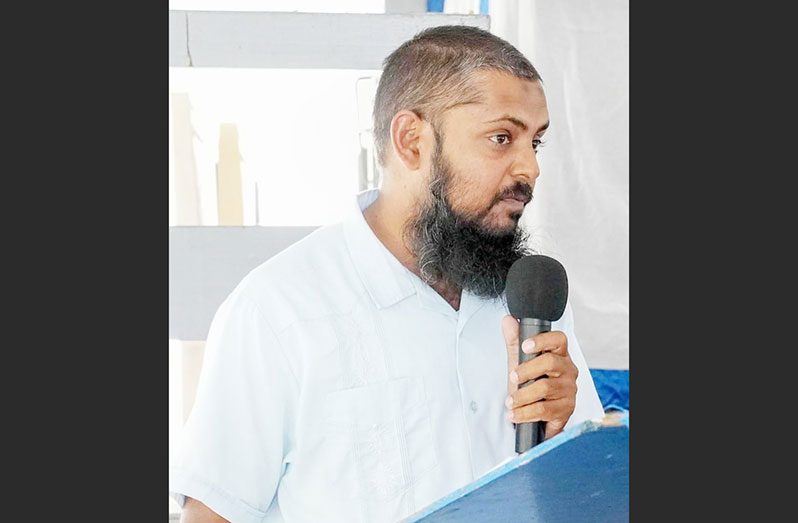PUBLIC schools across Guyana are soon going to be given “report cards” based on performance and quality output as part of a new system that will be implemented by the Ministry of Education (MoE) Inspectorate Unit, which is expanding with the hiring of approximately 200 new field inspectors.
In a sit down with the Guyana Chronicle earlier last week, Assistant Chief Education Officer (Inspectorate), Saddam Hussain, explained that the employment of the new field inspectors is part of efforts to improve the work of the Inspectorate Unit to hold schools accountable to work.
“In all we are looking to train about 200 field inspectors but for this year in all we expect to have about 75 field inspectors. This will be people who are experts in nursery, primary and secondary, people who are part of the education system, or have retired, and have special skills. They will be recruited, trained, tested and appointed to serve as field inspectors,” he explained.
He added: “There were some areas which the inspectorate could not have inspected because we don’t have the kind of people in the unit that could do so. With the field inspectors, we could now get somebody and go inspect a Home Economics Department, and IT Department, or an entire nursery literacy or numeracy because the field inspectors will be people skilled in that, nursery literacy, numeracy.”
The Inspectorate Unit is the arm of the Education Ministry which looks at quality assurance issues at schools throughout the country.
“We look at the schools and try to figure out how close they are in terms of policy to the ministry’s policy. Figure out whether the schools are using the best practices in education,” said Hussain.
REVAMP
He noted that the hiring of the field inspectors was also part of the work to revamp the Inspectorate Unit.
“This year we are going on a restructured platform. We are going with a new methodology. Previously, we went to a school and focused on the records and documents kept by the schools and not doing an intrusive inspection into what is happening at the schools,” Hussain explained.
This new method of inspection will also see the Inspectorate Unit surveying parents as well as students to get a holistic understanding of the quality of teaching and learning at schools across the country.
From this, the Inspectorate Unit will create a “report card” for each school, which will be made public.
“Going forward, each school will have a rating, just like how people can rate a product on a website,” he noted, adding: “When we go to our new dispensation we will have our inspectors sit in the classroom and look at the teachers teaching. We want to see what are the good practices being done, what are the weak spots and then this information will be fed to our training division or the ministry to develop programmes to fix deficiencies.”
He noted that emphasis will also be placed on the physical infrastructure of schools and through this new method there will be improvement in how issues at schools are detected and dealt with.
ACCOUNTABILITY
All will be held more accountable for deficient areas under their authority.
Hussain hopes that schools will see the unit as an agency that they can work along with to bring improvement to all the schools and noted that schools will be consulted throughout the process.
“Before we go to the school we say that we are coming and that we are looking at x, y and z; that’s two weeks in advance and then we do our inspection and write the report but before we do anything to the report, it goes back to the school for their approval. Once they approve and we come to a mutual understanding then we give our report to the MoE and the public,” Hussain explained.
This information will be available on the website of the Inspectorate Unit, which is also currently being upgraded to make it more user-friendly to parents and students as well as staff of the ministry.
The expansion in staff of the unit will also allow for an increase in the number of schools visited per year.
Guyana has some 1,175 public schools; however, the Inspectorate Unit only has scheduled visits for 125 schools this year. All of the schools are inspected in a five year cycle.
Hussain explained that even outside of the schools scheduled for visits by the Inspectorate Unit, all of the schools across the country are still visited throughout the year by the various District Education Officers (DEO) of each region. They are tasked with school inspections.
The DEOs are tasked with sending reports to the Inspectorate Unit on a monthly basis.




.jpg)










